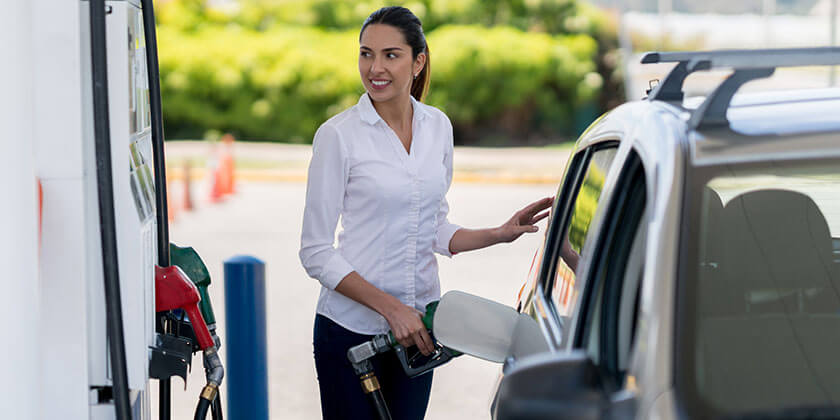Car Series: Should you buy a petrol or diesel car?

Right now, in Australia, when it comes the preferred fuel for passenger vehicles, petrol is more popular than diesel. However, when thinking about buying a car, it is important not to immediately dismiss diesel before really considering it as an option.
Difference between petrol & diesel
Before reading the individual benefits of petrol and diesel, it is necessary to understand the difference between the two:
Petrol is the most commonly used transport fuel – a hydrocarbon derived from crude oil. Typically, it is used to fuel internal combustion engines for transport vehicles as the fuel is mixed with air, compressed by pistons and ignited by sparks from spark plugs. A petrol car can achieve high revs and maximum power at a higher number of revolutions.
Diesel is made through a process of distillation that crude oil transforms into different fuels and petroleum-based products, giving a car more ‘grunt’ in the form of the torque. The fluid is fired into the combustion chamber, under pressure, resulting in the combustion being instantaneous. A diesel engine will have the fuel and air compressed first outside the combustion chamber in the inlet port. This leaves it with a higher compression ratio and more efficient.
Both petrol and diesel have their own favourable traits, so when deciding which option to take you need to consider which qualities will best benefit your personal use of the car.
Purchasing the car
When purchasing your vehicle, the most significant difference you will find between purchasing a petrol car versus a diesel car is the cost. Since diesel is more gluey than petrol, it takes more effort in delivering the diesel from the tank to the fuel injectors. Also, diesel cars come typically with a turbocharger to assist the engine in churning out more torque and lower rpms, which in turn, require more tougher parts, making diesel cars generally more expensive than petrol cars.
At the pump
Both petrol and diesel cars have their own benefits when it comes to filling up. There are more pumps that offer petrol at a petrol station and often it is hard to find diesel. Furthermore, petrol is cheaper to buy for your car and you may see that it is cleaner than a diesel pump station as petrol evaporates but diesel becomes greasy residue.
Contrastingly, diesel is fuel efficient meaning it lasts considerably longer than petrol, depending on the size and how often you use your car. This means that you will visit the petrol station less, ultimately paying less for fuel.
Use of car
The use of a car differs from person to person. In general, diesel cars are better for cruising along a highway, riding longer distances and towing boats and trailers. Petrol on the other hand is more cost efficient when driving in urban city environments with shorter trips in a more stop/start style.
Compression
Generally, the diesel will tolerate more compression in the chamber over petrol, which can mean better longevity.
Throttle
A diesel car doesn’t have a throttle as the accelerator is connected to fuel delivery instead. However, a petrol car does have a throttle allowing it to vary engine output in response to the specific load.
Servicing
Diesel can have a higher cost for service and usually more often than a petrol car as they have specific parts which need increased upkeeping such as oils, filters and coolants. Diesel also requires a good, maintained service history. If left, it can lead to problems especially in the engine and exhaust filtration.
The exhaust filtration filters particles, catching harmful microscopic particles. However, a diesel will need a regular run on a highway to burn them. This regular run could be 60 mins every fortnight. If this doesn’t happen the filter can clog, leaving you to physically ‘limp’ home and to a service station. There, they will manually have to filter it and you will end up with a large cost of a regenerated or replaced filter.
Emissions
Both diesel and petrol have implications on the environment. While diesel has lower CO2 emissions than petrol, it produces higher levels of nitrogen dioxide which are linked to breathing disorder such as asthma. On the other hand, petrol produces less of nitrogen but higher CO2 emissions.
Car selling
When it comes to selling your car, both diesel and petrol have their qualities in sale. A diesel car is generally more valuable than a petrol car and will therefore more often than not it will sell for a higher price.
Car insurance
When choosing between a petrol and diesel car, you not only need to take into consideration the purchase price, fuel and maintenance costs, but also the cost of car insurance cover.
Conclusion
Overall, buying a car is a personal decision based on what your purpose is for using it and specific preference. If you wish to tow a boat or trailer then a diesel car is probably the preferred option. If you are more often travelling around in urban environments, than a petrol fuelled car can be the more cost-efficient option.
All in all, it is important to consider diesel as much as petrol, as diesel has improved dramatically in the past decade by creating electronic injection control, fuel rails and turbo charging.
3 May 2019